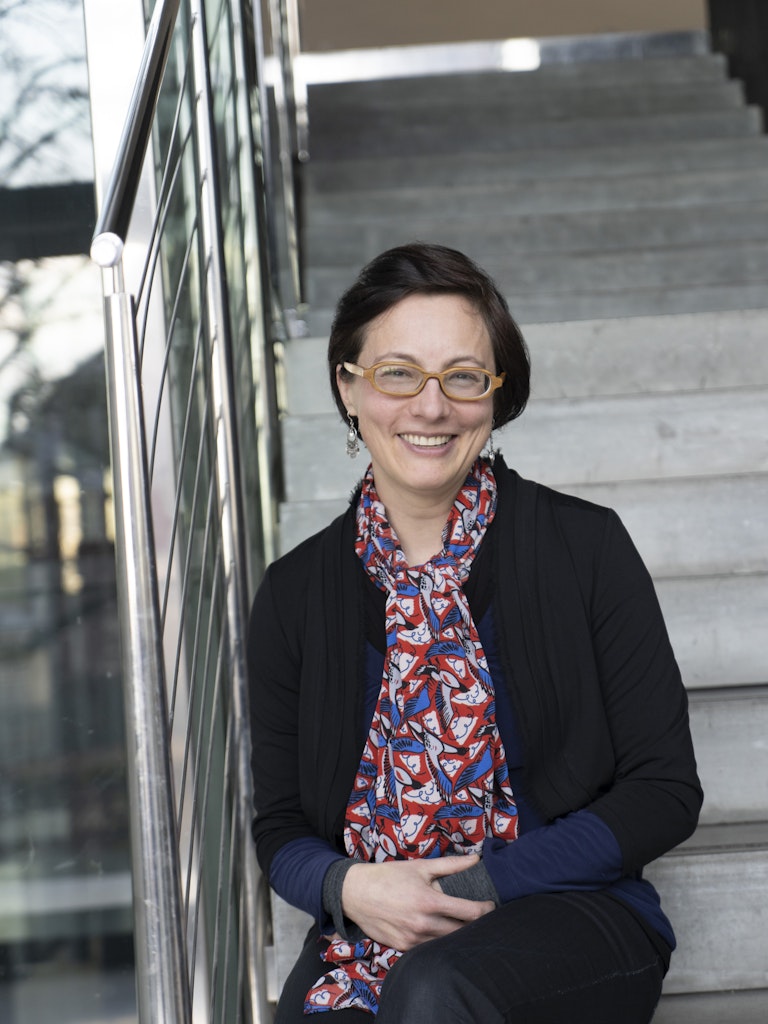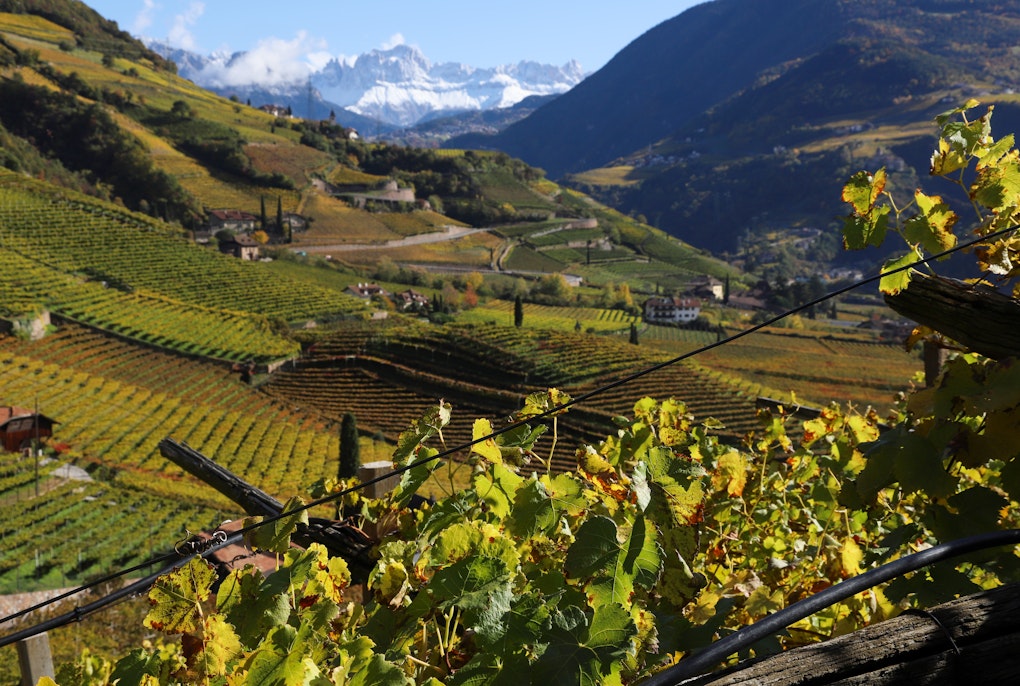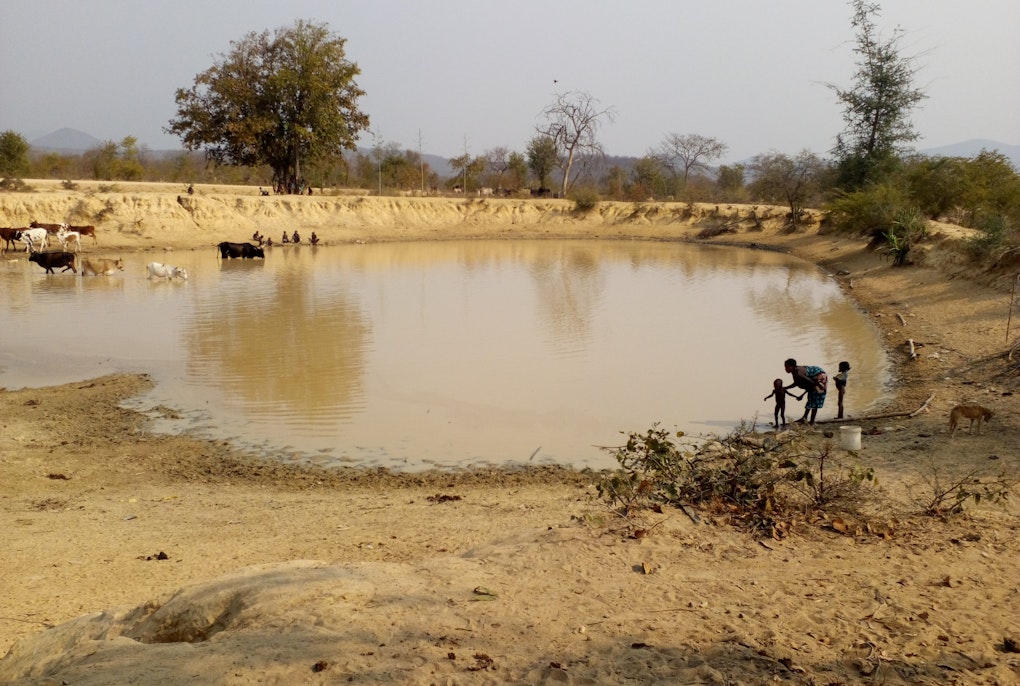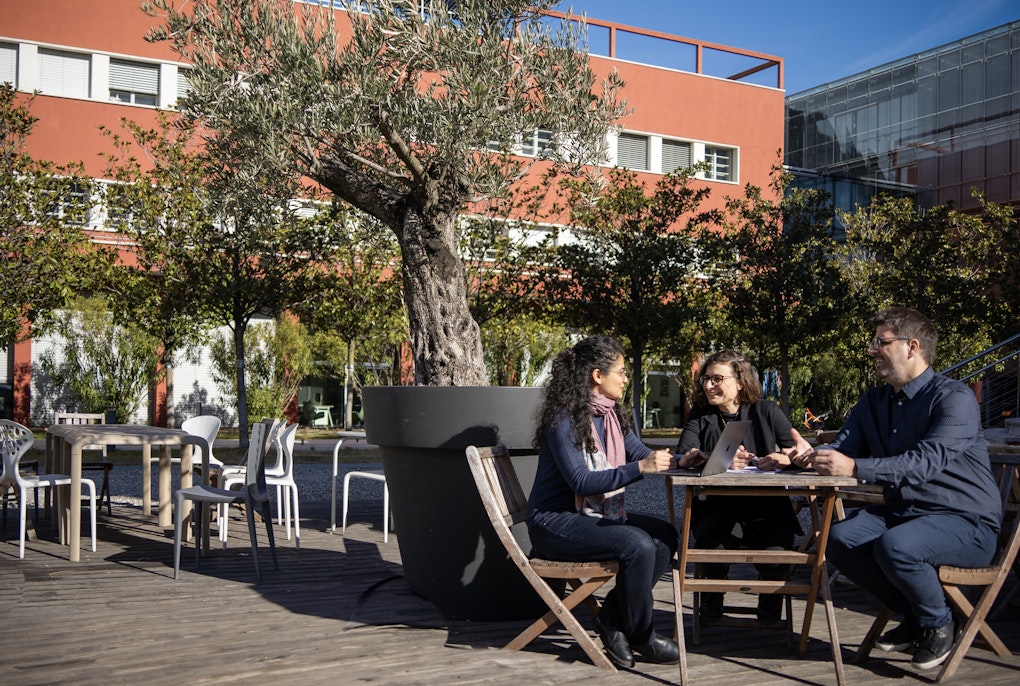Rebecca Nelson is an Associate Professor of Melbourne Law School and the most recent Federal Scholar in Residence at Eurac Research.
Credit: Eurac Research | Annelie Bortolotti
magazine_ Interview
Death by a thousand cuts
Interview with Environment Lawyer and Federal Scholar in Residence Rebecca Nelson.
The Federal Scholar is in Bolzano researching the management of landscape in the Alps, focusing on Alpine grazing and how it contributes to biodiversity as well as culture. As part of a book project examining the regulation of cumulative environmental effects Rebecca Nelson shares her work on cities and the environment, the subject of a recent book chapter and seminar.
What’s emerging from your interviews with experts in South Tyrol?
Rebecca Nelson: One of the major themes is coordination. And being here is an excellent context for thinking about that. There's inter-provincial coordination between Tyrol in Austria and South Tyrol, as well as the province and municipalities, the province and the national government, and then the Alpine Convention over the top of everything, plus lots of European directives. I think the fact that South Tyrol’s an autonomous province adds a really nice twist. Particularly that there's cultural difference between the German-speaking and the Italian-speaking populations, and that there's this cultural connection between the German-speaking population and mountain grazing. It means that the issue is perhaps more prominent than it would be in some other regions, there are all these really unique legal mechanisms to deal with it, that are intertwining the environment and culture in a really interesting way. It's great to have those intersections actually and be able to connect with people who are looking at all those different perspectives in one place.
In your book chapter, you talk about cities as being protagonists: environmental villains and victims.
Rebecca Nelson: The characters of the city as villain and city as victim are not intended to relate to any specific city. It's generalized, we see cities that occupy these positions in various ways, usually as a mixture of the two, of both villain and victim. But a villain city, as a stereotype, is a city that causes environmental damage outside of its boundaries, in the way that it gets resources for the city. So, for example, water resources that require dams to be built outside of a city or energy facilities that are located outside of a city but may pollute another area for the benefit of the city's residents. And then within the city itself, around the world, and I think this rings true for many people, there are differences in the level of environmental health and environmental justice experienced by citizens in different parts of the city. People talk about there being a democratic deficit in terms of the people who are most vulnerable and who carry the greatest cumulative environmental burden, not having as much of a voice in political decision-making at the city level. A villain city is one that doesn't try to correct that democratic deficit, as well as causing environmental externalities outside of its boundaries. The city as victim is really pointing to the fact that cities suffer from environmental problems that are caused outside their boundaries as well. So, cities, especially coastal cities, are very vulnerable to climate change which of course is caused by global activities, cumulative emissions emitted globally and because of this, it's very expensive for cities to think about ways to respond to climate change or to even understand the problem.
But a villain city, as a stereotype, is a city that causes environmental damage outside of its boundaries, in the way that it gets resources for the city.
Rebecca Nelson
How to even begin?
Rebecca Nelson: We need to see things in a broader sense: the topic of cumulative environmental harms, the idea of death by a thousand cuts, as opposed to a huge project that has environmental impacts, should be evaluated to understand how these harms can be managed. On top of that, things like scientific modeling are needed to figure out what sea level rise will look like in terms of areas of the city that are most at risk and to find the optimal way of responding. Is it to construct a sea wall? Is it to undertake what people call managed retreat? Actually moving the city from its current geographic location. All of these are really huge decisions, and very costly, and the city needs to respond to those circumstances, ones which it doesn't cause. So that's an important element of the city being a victim as well.
Has there been context you've examined where people have had to undertake a forced retreat?
Rebecca Nelson: It's an active conversation, less so in the context of climate change, and more so in the context of riverine flooding. Australia has just recently experienced major floods, and so that's part of the debate. How do we prepare for future major floods knowing that climate change will make them worse, knowing that cities have been constructed on flood plains. The suggestion of the book is that regardless of whether a city is a victim or a villain: in reality, cities have elements of both. The common insight from thinking about cities as victims and cities as villains is the need for coordination. Cities need to have more of a voice about how to respond to environmental problems that they're a part of, either as victim or villain. And those coordination mechanisms are the key.
The city as victim, is really pointing to the fact that cities suffer from environmental problems that are caused outside their boundaries.
Rebecca Nelson
And that’s where naming them in the constitution comes in?
Rebecca Nelson: It would be a really powerful vehicle if we recognize cities through constitutions to give them a greater voice in coordination mechanisms. Looking at city funding is another really important element: recognizing cities in constitutions could help guarantee a stable funding base, so that they actually have the resources to respond to these really important scary, prominent environmental problems. And by giving the citizens of cities protection while recognizing that environmental conditions in cities are often some of the worst that citizens experience can be done through constitutions as well, through constitutional environmental rights. There are many constitutions around the world that do have constitutional environmental rights. Focusing on what that looks like in a city context, and how citizens might be able to use that to protect themselves in the city as villain context is another way to give cities voice, or at least citizens in cities more of a voice in the face of environmental problems.
And which direction is it going in Australia?
Rebecca Nelson: Australia has a very rigid constitution. It's extremely difficult to change, and it hasn't been changed many times since it was adopted in 1901 and I don't see the recognition of cities or of environmental rights happening anytime soon in Australia. Italy though, is an interesting context, having just had constitutional reform to put in more references to the environment. It's not impossible that this can happen in constitutions generally, but Australia is not the first place that will get recognition of cities or recognition of the environment. The book chapter focuses more on a theoretical perspective, but I am firmly of the opinion that you need empirical evidence before you can say that's a model of best practice.
We need to see things in a broader sense: the topic of cumulative environmental harms, the idea of death by a thousand cuts, as opposed to a huge project that has environmental impacts, should be evaluated to understand how these harms can be managed.
Rebecca Nelson
Where will the change come from?
Rebecca Nelson: One of the interesting court cases dealing with these issues was in Chile, where there's a region which people refer to popularly as a sacrifice zone, where there's so much industry and so much pollution that people's health is really adversely affected. A Supreme Court case that came out of that looked at the constitutional right to a healthy environment, and how you need coordination between different levels of government to actually implement that. Chile went on to have quite a lot of instability, protests, popular protests, about all sorts of different things, which led to the current discussions about the drafting of a new constitution. It’s a really interesting example of where the change has come from the people, and where it's kind of wrapped up in lots of different factors, but the environment is part of one of those factors. I think the answer's probably different in different places and depending on legally what's needed to change a constitution. But popular unrest is one way that we're seeing it.
You talk about the Anthropocene and human impact on environment and how we live. What are your visions for the post-Anthropocene, and what does it mean to you?
Rebecca Nelson: I think Anthropocene is just a catch word for getting people to realize the scale of environmental impact that humans have. And the book is about how you regulate cumulative environmental impact, recognizing that the things that make the front pages of the papers, an oil spill say, don’t actually encapsulate the majority of human environmental impact. In the future I would love to see more attention given to the totality of impact and getting that in the public mind. It’s definitely happening with climate change and climate awareness, and while it's happening to differing degrees in different places, it’s at the forefront of people's minds in a lot of places. I'd love to see just more awareness of this incremental death by a thousand cuts that humans can wreak on the environment unless there's adequate thought given to that level of damage. Many people would argue that there is no place in the world where the environment and people can be isolated from each other, it's all interlinked. And I was actually reflecting on this this morning, in relation to alpine grazing. Several thousand years ago, before Alpine grazing started, there would've been a different assemblage of ecosystems on the Alps, and human activity and the practice of alpine grazing have made the ecosystem what it is today. But that's not the environment removed from humans. That's both together. Biodiversity is really key, the extent to which humans can live alongside other species without rendering them extinct. Law has a part to play. Regulation has a part to play in that. But it's not the only part, a culture change is and awareness is also important.
The Federal Scholar in Residence Program
The Federal Scholar in Residence program is set up for experts who wish to present and publicly discuss federal and regional questions that are of importance to legislators and civil servants, as well as the international academic community. Applicants have to submit a full-fledged academic paper in either English, German, Italian, French or Spanish language and the winner is granted a research stay of up to three weeks at Eurac Research. More information can be found here: www.eurac.edu/federalscholar Eurac Research Federal Scholar in Residence - YouTube
About the Interviewed
Rebecca Nelson is an Associate Professor of Melbourne Law School, the Director of the Centre for Resources, Energy and Environmental Law, an environmental and water law academic and practicing lawyer who uses practical lessons, innovative tools, and global experience. Her approach is empirical, interdisciplinary, comparative, and engaged with government, NGOs, business and communities. For more, see www.rebeccanelson.org








